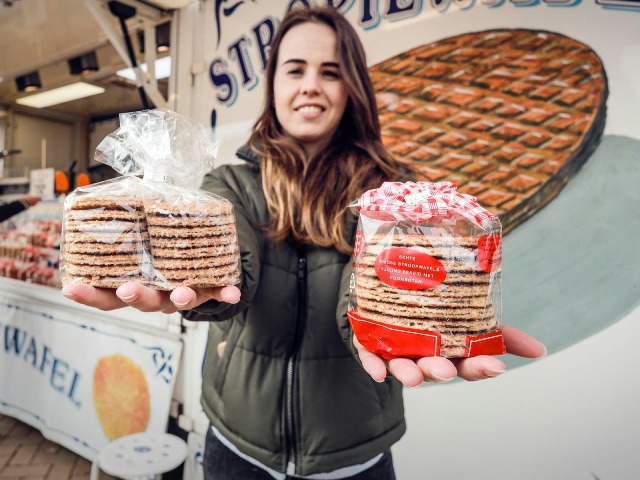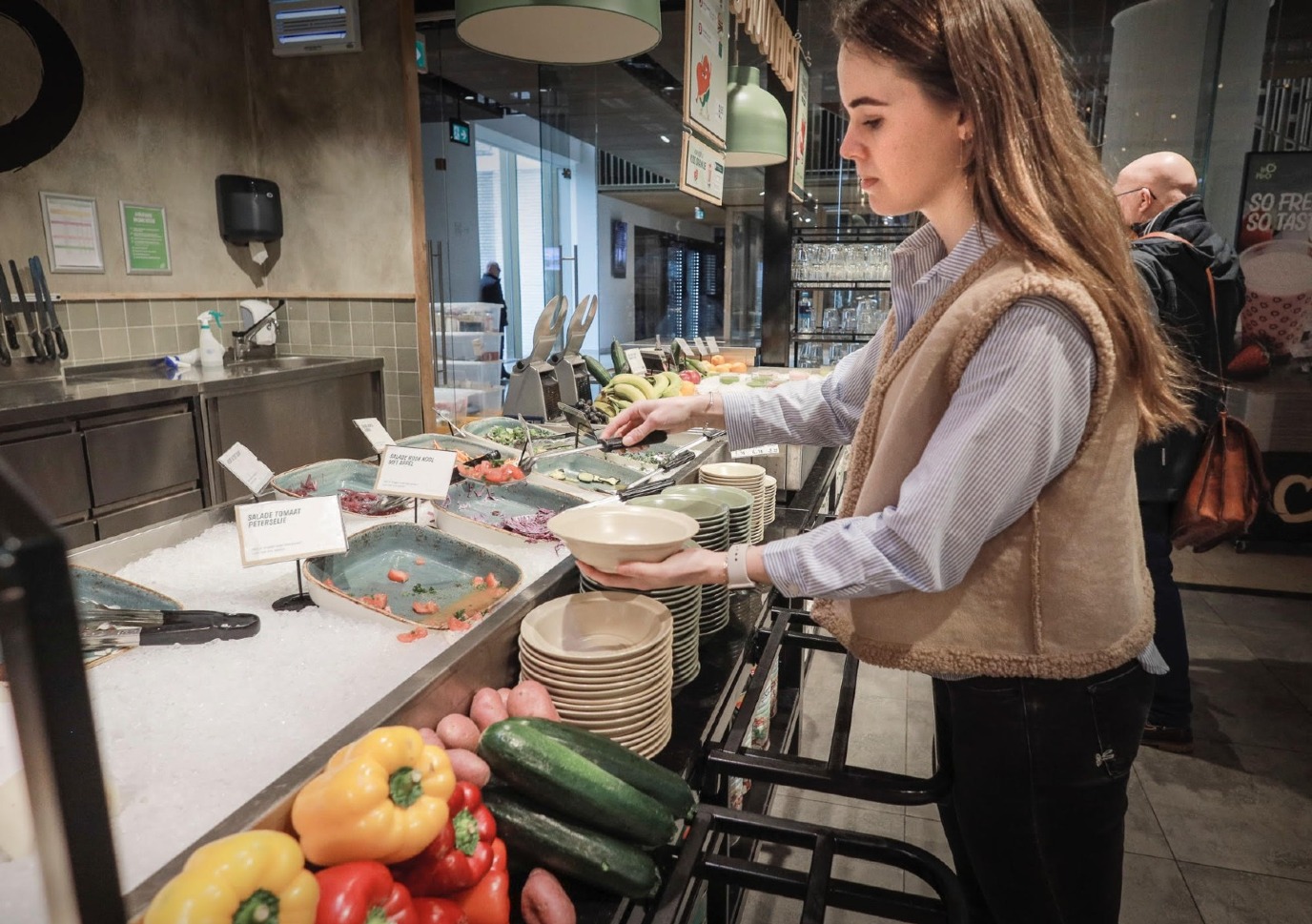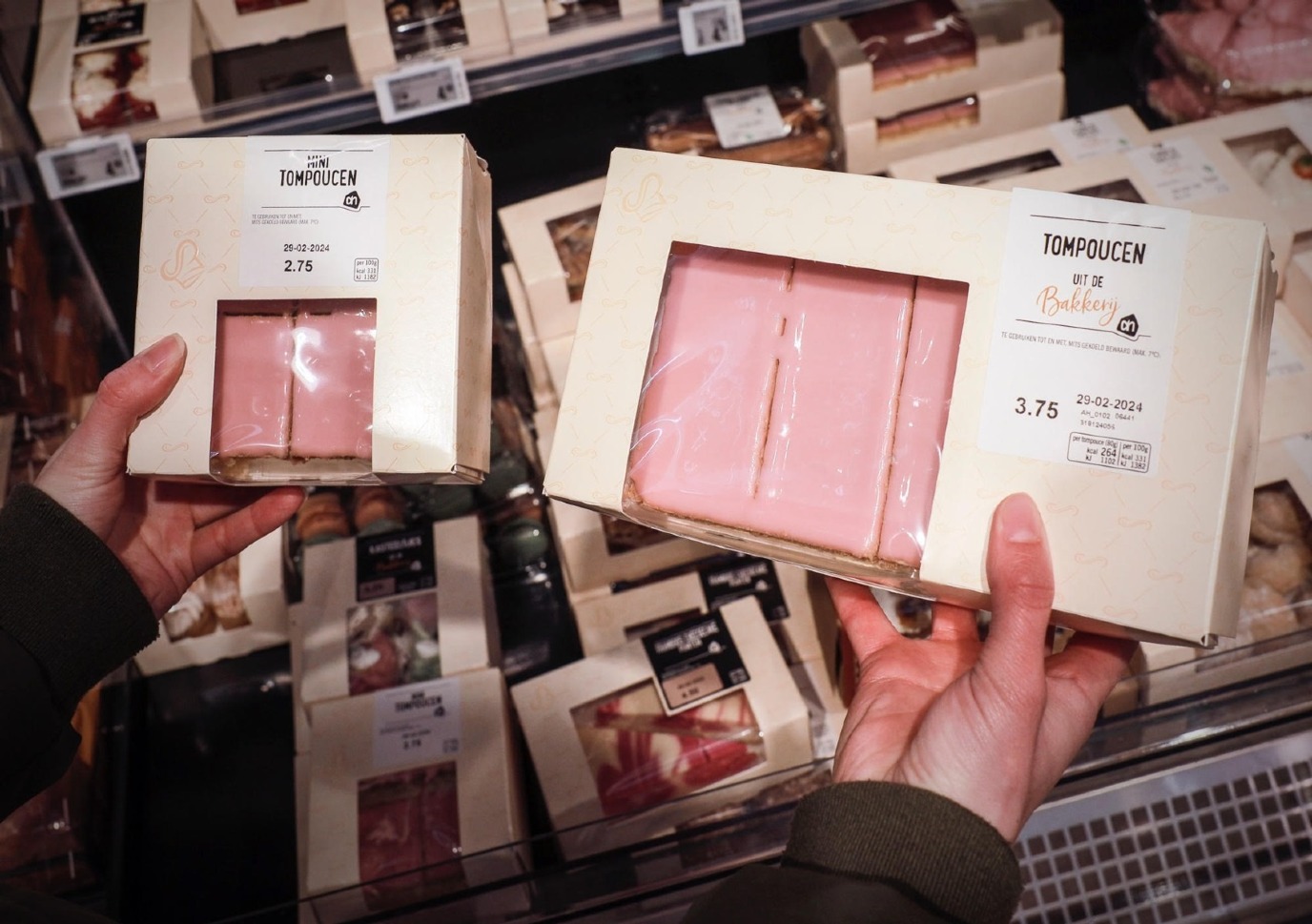The benefit of smaller portions: less snacking, less waste
| Date: | 15 March 2024 |

Oreo cookies and stroopwafels: Amber Werkman was working on a very tempting research topic these past years. The PhD student at the Faculty of Economics and Business went in search of a solution to overconsumption and food waste. Her conclusion: consumers snack and waste less when they are free to choose their total portion based on smaller units.
Text: Riepko Buikema, UG Communication, Photographs: Henk Veenstra
She remembers walking through the supermarket, looking for snacks that could be purchased in larger and smaller units. ‘Supermarkets like to invest in large packages,’ explains Werkman. ‘The idea is that this is more interesting for customers, because they want value for their money. We know from previous research that this leads to customers consuming and wasting more. I’m interested in the psychology behind people’s choices, with a particular focus on health and nutrition. With a view to well-being and sustainability, I wanted to explore the impact of the quantities on offer.’
Feeling full sooner
Werkman looked, among other things, at how many big stroopwafels study participants bought, ate, and threw away, compared to the same cookie in a mini variant. She had no trouble finding test subjects. ‘We know that people eat less when offered smaller units. The reason is that it feels as if you are eating more than you are, so you tend to stop sooner. This was confirmed in my study. But I also wanted to look at the other side of the story: What happens to the left-over cookies?’

Choosing your serving
To do so, the researcher designed four different conditions for her study: a fixed serving of smaller cookies, a fixed serving of big cookies, a serving of small cookies that the participants could choose themselves, and a self-chosen serving of big cookies. ‘Those smaller units — the mini stroopwafels — helped customers to set limits, which in turn meant that they ate less of this unhealthy snack,’ concludes Werkman. To also reduce food waste, it is crucial that people can choose their own serving—the total number of cookies. ‘The quantity must meet the need; that is the crux of the matter. It helps if consumers make a conscious decision when buying, ordering, or helping themselves to food.’

A new norm
This conclusion comes with an important caveat, says Werkman. ‘I am not saying: everyone should just take however much they want, and everything will be fine. Look at all-inclusive restaurants, with their inexhaustible food supply. But my findings could be used in a place like a pizzeria. The norm there is that everyone orders an entire pizza. People have a tendency to conform to this. But if you want to combat food waste, it helps if people can order as much as they need, and are not forced to take a large portion. In an ideal situation, the pizza in question would also be served in smaller slices, so that people feel full sooner.’
Conflict of interests
Werkman enthusiastically shares her findings, which are very much in line with her motivation. ‘I have always been driven by the desire to do something good; I would like to contribute to more sustainability or improved health.’ At the same time, some of the conclusions of her PhD thesis are at odds with current marketing principles. In the supermarket, our gaze wanders from discount to special promotion, and from ‘1+1’ to ‘more, more, more’. Everything is designed to maximize profit. How useful are her insights to sellers?
‘Clearly, there is a conflict of interests here,’ Werkman admits. ‘On the other hand, the participants in my research study appreciated being offered smaller units, as this encourages us not to overeat and to avoid food waste. Better portioning works at home; that is a great conclusion. But it is also interesting for retailers and supermarkets, because the test subjects were prepared to pay more for it. People are becoming more aware, and this is reflected in their choices. That is something retailers can capitalize on.’
Frustration and fun
Looking back on her PhD programme, Werkman describes the last few years as a roller-coaster ride. This was due in part to the coronavirus pandemic, which may seem far away already, but that greatly affected the researcher’s ability to perform experiments. ‘The distancing measures caused a lot of frustration. I've always been a hard worker, but in this work, there are no guarantees that the time you put in will actually lead to the desired result. Not everything is within your power, no matter how well you think it through. On the other hand, there were also lots of great moments, such as when I got to present my research at conferences in Texas and New York— a fantastic and lasting memory.’
Stroopwafels, chocolate cookies, portion sizes: the research topic was on her mind pretty much all the time for the past years, says Werkman. ‘It’s always in the back of your mind; especially around deadlines, you work on it any chance you get.’ The Frisian native found some relief in sports: she managed to play football outdoors at Be Quick Dokkum, as well as at premiership level indoors with Drachtster Boys. With the latter team she ended up in top position in the competition, and in the half-final for the cup, just before the pandemic destroyed any chance they had of winning a title. ‘We never got to finish the season. But it was a fantastic year anyway. Playing football really helped me. It was intense, but I always came home energized.’
A better world
This leaves the question of what the future will bring. ‘I’ve learned a lot. Including the fact that I prefer to contribute to practical solutions, rather than to academic literature. I would like to do some applied research next, to find answers to a concrete question. For example for an organization like the Netherlands Nutrition Centre. Maybe it’s time for me to find out what is happening outside academia; I’ll see what comes my way. But I will soon be looking for opportunities to make the world a slightly better place in a new job.’
More information
-
If you have any questions, please contact Amber Werkman
-
Food quality and Preference: Are you being served? Managing waist and waste via serving size, unit size, and self-serving
-
Levensmiddelenkrant: Eet je het op of gooi je het weg? [Will you eat it or will you throw it away?]
https://www.levensmiddelenkrant.nl/(...)-of-gooi-je-het-weg-

